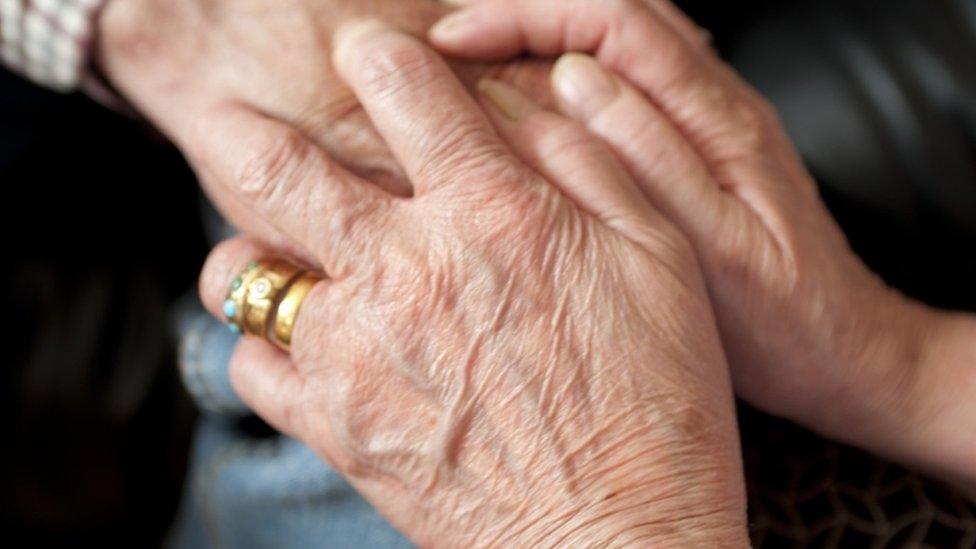Ministers consider council tax rise to cover social care funding
- Published
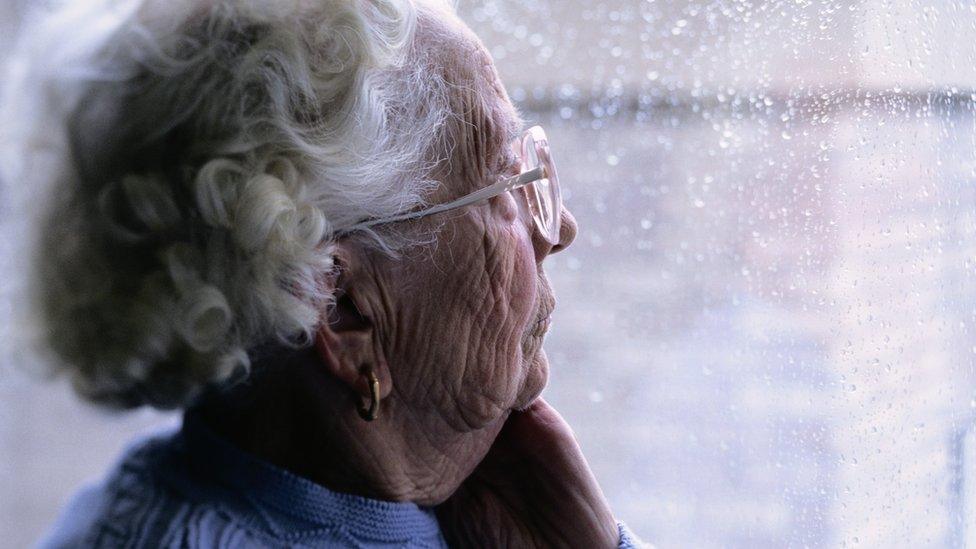
Local authorities could be allowed to make a further increase in council tax to pay for social care.
Ministers in England are discussing ways to invest more money into care services for the elderly and disabled.
Lib Dem health spokesman Norman Lamb called for a cross-party commission on social care to ask the public how much they are prepared to fund the service.
"If you keep sleepwalking towards the edge of the precipice, real people will suffer," Mr Lamb said.
Communities Secretary Sajid Javid will unveil spending plans on Thursday.
Liberal Democrat Health spokesman, Norman Lamb: "There is an urgency about this"
One option is to let them increase council tax beyond the extra 2% for which they already have permission, while another is bringing forward extra money they have been promised in 2019.
This comes as fewer people are getting help from local authorities.
Older people's services - representing the bulk of care - have been particularly badly hit.
Spending has fallen by 9% in real terms over the past five years with local government blaming cuts to their funding from central government.
The result has been an even larger drop - of over a quarter - in the numbers getting help in care homes, nursing homes and in their own homes for daily tasks such as washing and dressing.
It has meant growing numbers having to go without help or pay for their own care - councils fund services only for the poorest, with those with assets of more than £23,250 expected to pay the full cost of care themselves.
Regulators have warned these cuts have started adding to pressures in the NHS with A&E units said to be bearing the brunt.
Old and frail patients are being admitted because of the lack of community support, which is also being blamed for the growing number of delayed discharges - cases where patients are ready to leave hospital but cannot.

Read more:

The BBC has been told that before the referendum Number 10 was considering plans for a cross-party commission to look at the costs of health and social care.
David Cameron's team invited three former health ministers - Mr Lamb, Conservative Stephen Dorrell and Labour's Alan Milburn - to present their plan to the government.
Mr Lamb said: "We went in and talked to them and presented them with a paper, then the whole run up to the referendum took over and we never got any response from that.
"Then, of course, there's been a change of government but the need for this government to engage in this and for all parties to stand up to their responsibilities as well, to join a process, to ensure that we reach a once-in-a-generation settlement for the health and care settlement is absolutely fundamental."
When asked what he would say to Theresa May's team, Mr Lamb replied: "Engage. Talk to us now. There is an urgency about this."
Find out the cost of care in your area
Ahead of last month's Autumn Statement there were suggestions the government would invest more money into social care, but it was not included in Chancellor Philip Hammond's announcements.
However, ahead of the local government financial settlement for 2017-18, expected on Thursday, the Treasury is understood to be discussing ways in which funding could be increased.
The prime minister's spokeswoman refused to comment on the speculation, but said an announcement would be made soon.
And she added it was not "just about money", pointing to the wide variation in the delays being seen getting patients out of hospital from area to area.
"There are other issues to be addressed," she added.
One option is to allow councils to increase the 2% precept they applied this year by even more in the coming years. The plan was to allow an extra 2% a year for the rest of the parliament, meaning an overall rise of 8% by 2019-20.
But under the steps being considered is giving councils the ability to get to 8% sooner or perhaps even go above the 8% limit.
The second option is to use the Better Care Fund. That is a pot of money councils share with the NHS, which is worth £3.9bn this year and is due to increase by £1.5bn in 2019. Many have argued the extra funding should be brought forward.

'My mum needs dignity and respect'
John Sibley's mother is 89 and suffers from dementia. She was a resident in a care home until she fell and fractured her leg in June, when she was admitted to hospital.
Although she has been ready to be discharged since July, a shortage of care home places and a lack of personal funds mean she is still staying in a windowless hospital room.
The 65-year-old, from South Gloucestershire, says: "We don't need a 2% precept; we need hundreds of millions of pounds.
"We need a two-tier system again with homes run by either the council or NHS, and other homes run privately.
"I just want her to get somewhere where she can have a life with some dignity and respect; some quality of life."

Martin Green from Care England, which represents care providers, said that funding problems in the industry were "reaching a crisis point".
"Research shows that about 40% of care services will no longer be viable in the medium term, so this is a huge number of care services that will be lost, some companies will definitely go bankrupt," he said.

NHS v social care
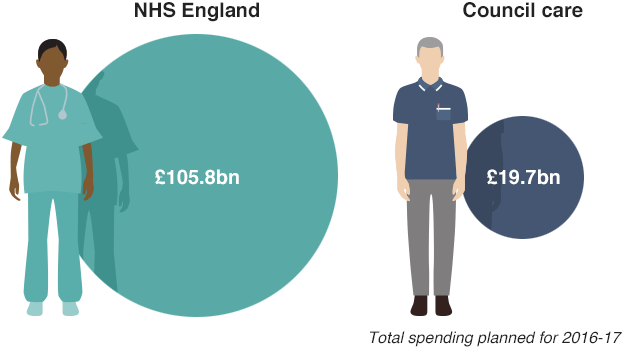
NHS: Budget controlled by NHS England and pays for hospitals, GPs, district nursing and mental health care. Services are provided free at the point of need.
Care: Budget controlled by councils and pays for care home and nursing home places as well as support in the home for tasks such as washing and dressing. Services are means-tested so only the poorest get help towards their costs.

Conservative councillor Izzi Seccombe, of the Local Government Association, said that increasing the precept "would not plug" any funding gap.
She said the £383m raised from a previous 2% precept was eclipsed by larger costs, such as the £600m cost of the national living wage increase.
A key problem with the precept system, she added, was variation in the amount of money raised between wealthy and poorer areas, creating a "postcode lottery".
Labour's shadow social care minister Barbara Keeley said the crisis has been "caused by savage Tory cuts to the budgets of local councils".
"The right solution would be for Theresa May to admit the Tories have got it wrong and deliver the needed funding for social care," she said.
"Asking taxpayers and councils to pick up the bill for their failure is no substitute for a proper plan."
- Published13 September 2016

- Published13 July 2016
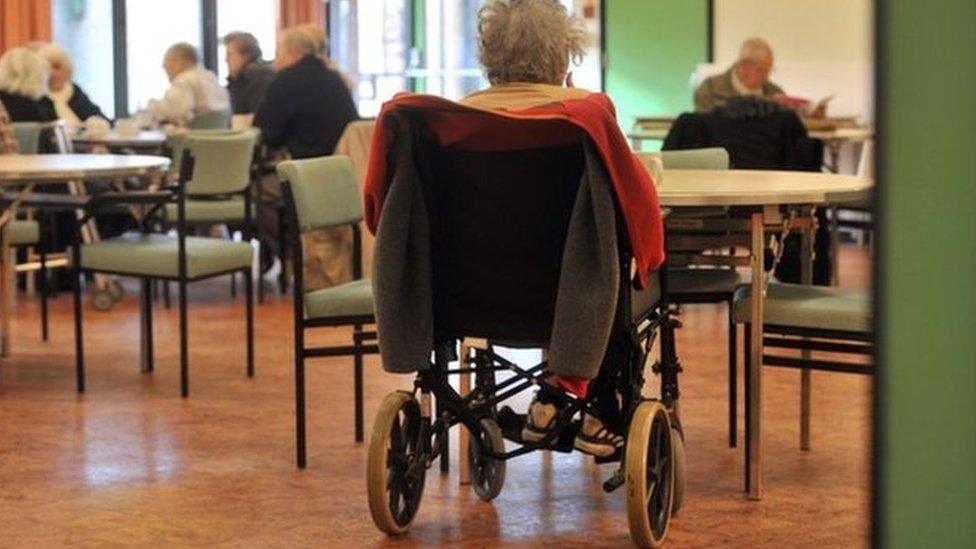
- Published12 February 2016
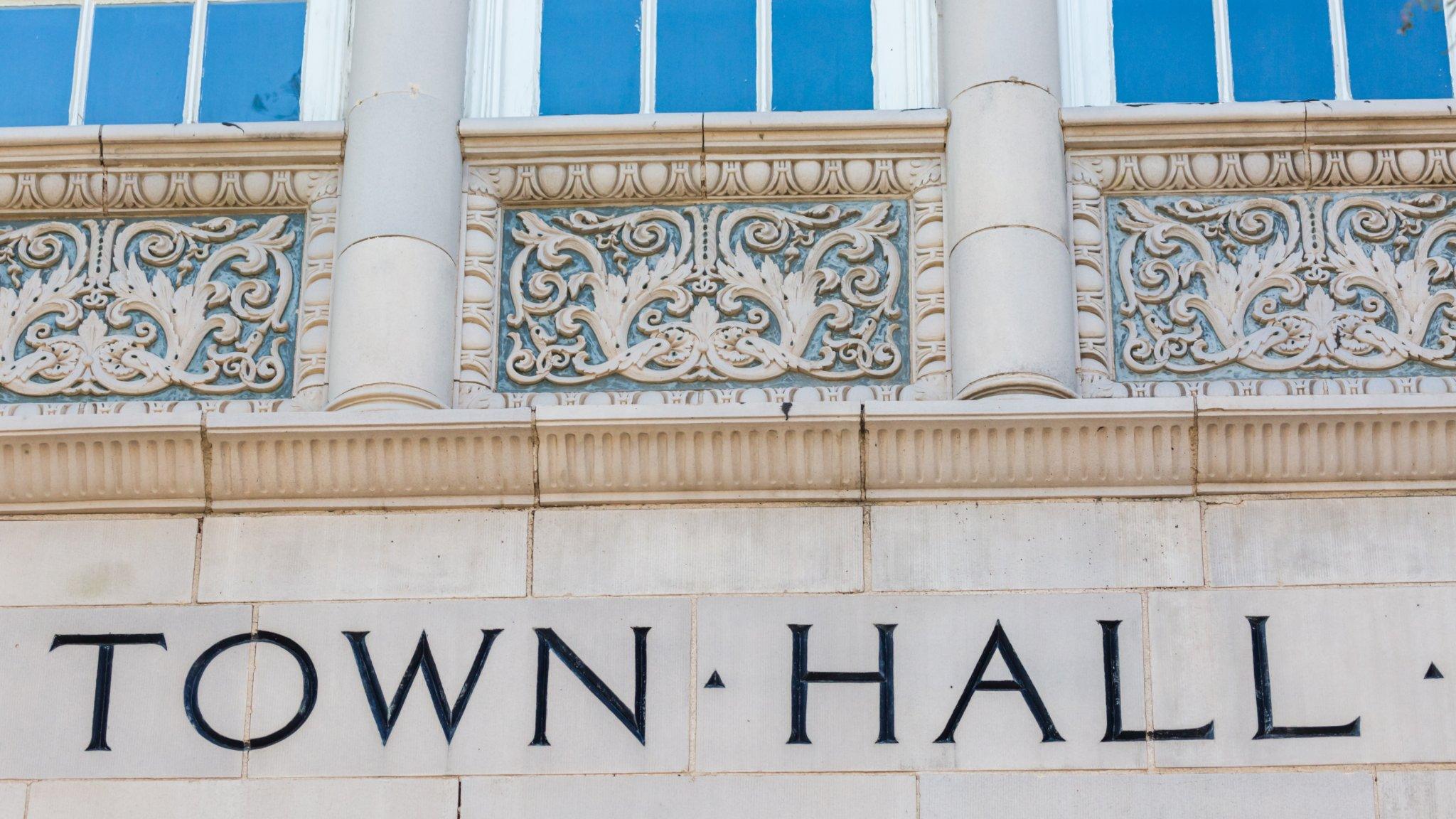
- Published21 November 2015
